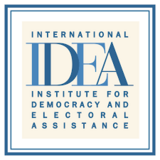
Elections during emergencies and crises: case study Ghana
Agbele, Fortune / Ghadafi SaibuExterne Publikationen (2023)
in: Toby S. James / Alistair Clark / Erik Asplund (eds.), Elections during Emergencies and Crises: Lessons for Electoral Integrity from the Covid-19 Pandemic, Stockholm: International IDEA, 321-336
ISBN: 978-91-7671-627-4
DOI: https://doi.org/10.31752/idea.2023.24
Open access
lections in Ghana, as in other third-wave democracies on the African continent, are deemed critical because they can contribute to either improvement or reversal—even total breakdown—in a country’s democracy. Threats to democratic governance include delays, suspension or total cancellation of the electoral process: decisions that may be forced on electoral management bodies (EMBs) once unforeseen events have caused systems to malfunction (James and Alihodzic 2020). The outbreak of Covid-19 was one such unforeseen event, becoming a global pandemic and coinciding with at least 88 general elections to date (International IDEA 2020). An April 2020 report by ECONEC (Economic Community of West African States, Network of Electoral Commissions) noted that the outbreak presented potential challenges to the conduct and management of upcoming elections within the sub-region (ECONEC 2020). Ghana is often seen as a beacon of democracy in Africa (Gyimah-Boadi 2009) having held seven general elections and overseen three peaceful transitions of power from an incumbent to an opposition political party. The 7 December 2020 general elections, held amid Covid-19, were the country’s eighth cycle since 1992.

